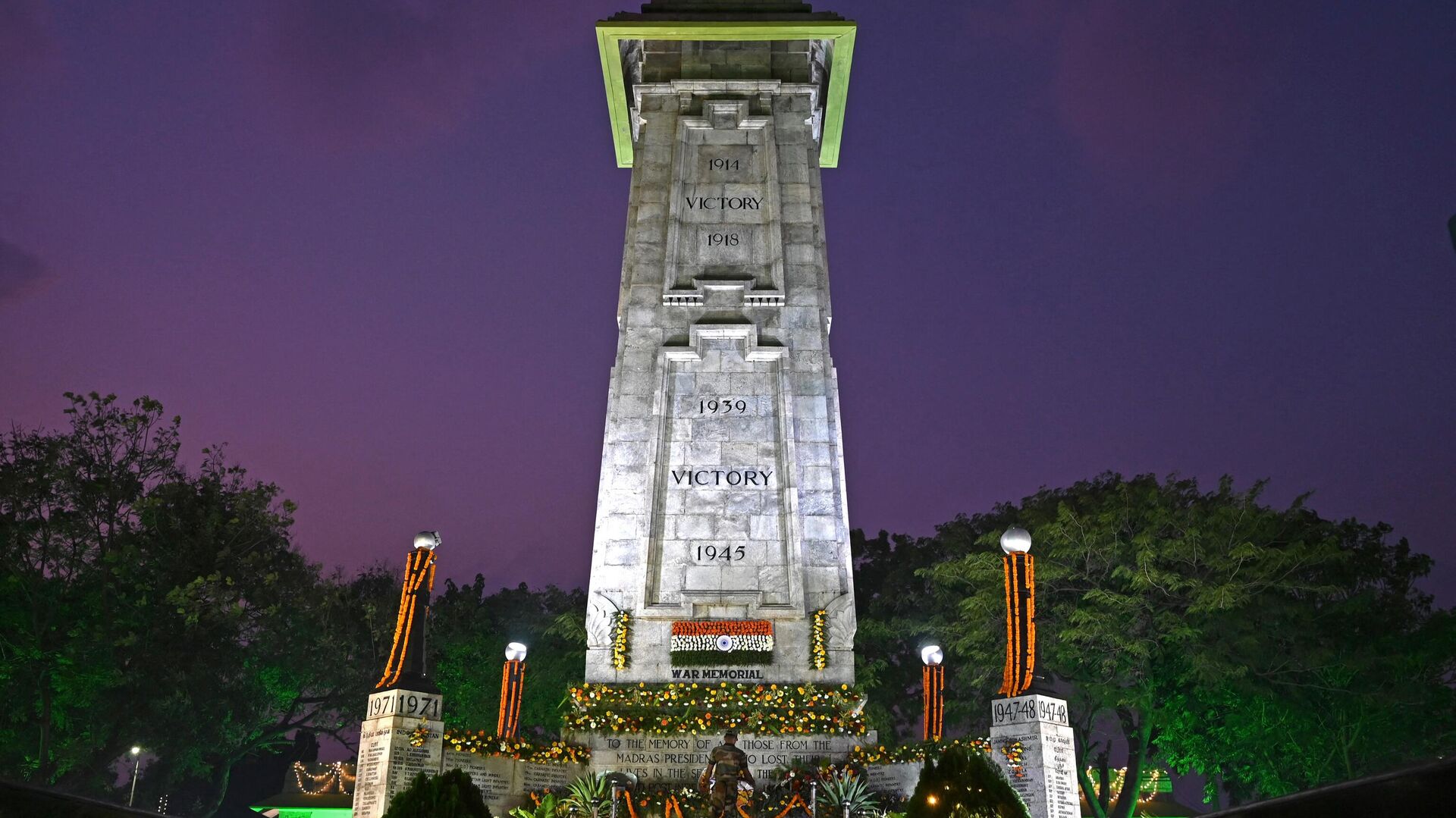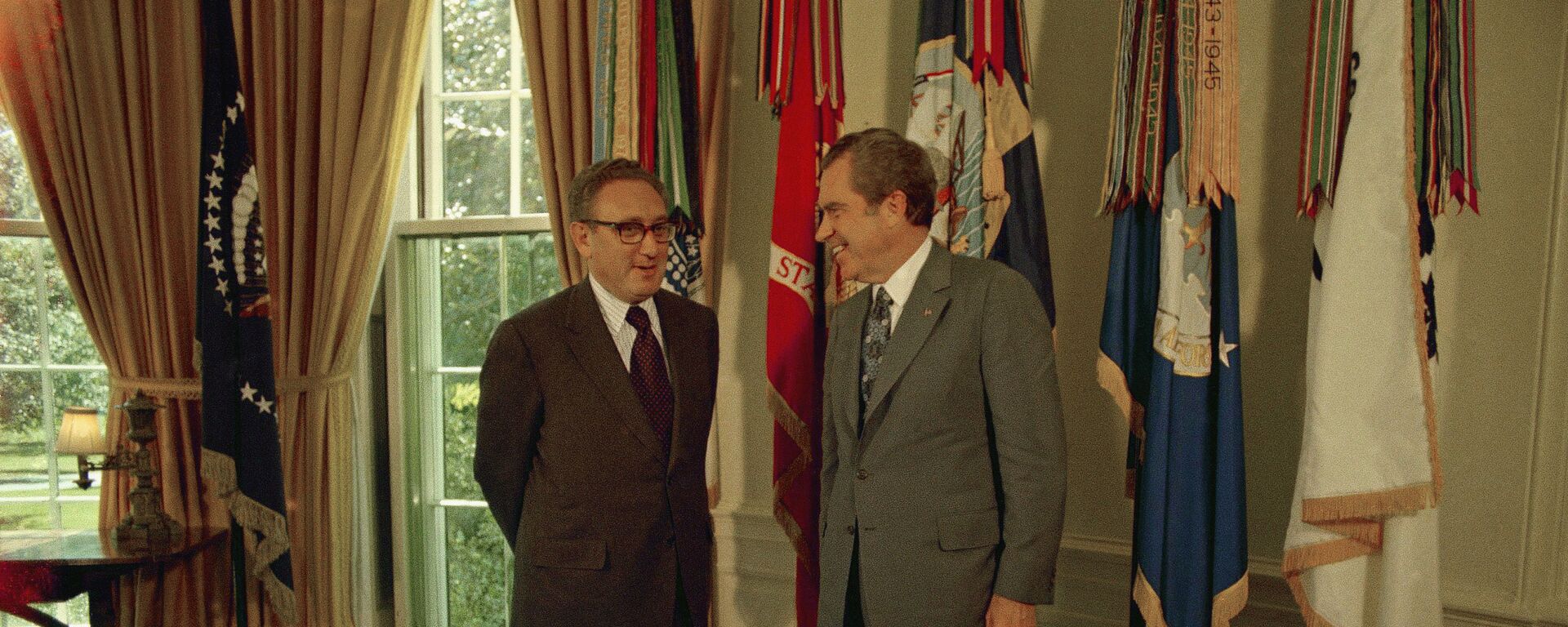https://sputniknews.in/20231216/how-indian-army-helped-mukti-bahini-in-fiercest-battle-of-1971-bangladesh-war-5852592.html
How Indian Army Helped Mukti Bahini in ‘Fiercest Battle’ of 1971 Bangladesh War
How Indian Army Helped Mukti Bahini in ‘Fiercest Battle’ of 1971 Bangladesh War
Sputnik India
The Battle of Gazipur was one of the pitched battles fought between the combined forces of Mukti Bahini, a guerrilla movement comprising troops, paramilitary and civilians, and the Indian Army between 3 and 5 December.
2023-12-16T14:55+0530
2023-12-16T14:55+0530
2023-12-16T18:35+0530
defenсe news
pakistan
bangladesh
india
pakistan army
imran khan
india-pakistan war of 1971
dhaka
sheikh hasina
assam
https://cdn1.img.sputniknews.in/img/07e6/0c/10/115748_0:161:3071:1888_1920x0_80_0_0_ff4ab147dd91ac7b3225b83aac9a99ae.jpg
The Battle of Gazipur was one of the pitched battles fought between the combined forces of Mukti Bahini, a guerrilla movement comprising troops, paramilitary and civilians, and the Indian Army between 3 and 5 December.The Gazipur Tea Estate, located in Kulaura, was then a formidable stronghold of 22 Baloch Regiment of Pakistan Army.The control of the tea garden was considered significant to control the city of Sylhet, a major railhead which is connected to the port of Chattogram, where Pakistan Army was receiving its armed supplies.The Battle of Gazipur was also considered critical for the upcoming Battle of Sylhet, which was fought between December 7 and 15, till Pakistan Army troops surrendered to Indian Army in Dhaka and led to the creation of modern-day Bangladesh.Significantly, the military gains in the Battle of Gazipur paved the way for India conducting its first heliborne operations during the Battle of Sylhet.Initially, the combined forces of regular Indian troops and Bangladeshi militia suffered heavy casualties as they sought to dislodge Pakistan Army from their entrenched positions in the tea garden of Gazipur, which borders Indian states of Assam and Meghalaya.The Indian Army entered the Bangladesh Liberation War on 3 December and carried on the operations till 16 December till the fall of Dhaka, which involved the surrender of around 93,000 Pakistani troops, according to historical accounts.However, the Indian government is said to have provided covert training and intelligence support of Mukti Bahini in the months leading to its official involvement in the War.‘Pakistan Army Had to Abandon their Positions’, Says Awami League MemberSquadron Leader (retired) Sadrul Ahmed Khan, a former Deputy sergeant-at-arms, Bangladesh Parliament and an official of ruling Awami League, is the son of Abdul Latif Khan, a Mukti Bahini leader who fought alongside Indian Army to take over the Gazipur Tea Estate.“The Pakistani forces were disoriented by the three-pronged attack of the Mukti Bahini,” he stated.“The Gazipur tea plantations were a stronghold of the Pakistani Army during the war. It was led by Pakistani Major Abdul Wahid Mughal,” Khan stated.Within hours, the Indian military leadership tasked the Gorkha Rifles, one of the most feared regiments of the Indian Army, to launch another offensive in the same direction.“They left the bodies of 15 soldiers at the Gazipur tea garden and took the bodies of the remaining 15 soldiers with them. On the same day, the allied forces reached Kulaura in the evening and thus the Pakistanis fled by road towards Sylhet via Kulaura-Brahmanbazar,” remarked the son of the Mukti Bahini organizer in the Battle of Gazipur.
https://sputniknews.in/20230527/how-henry-kissinger-failed-to-deter-india-during-1971-pakistan-war-2179823.html
pakistan
bangladesh
india
dhaka
assam
meghalaya
Sputnik India
feedback.hindi@sputniknews.com
+74956456601
MIA „Rossiya Segodnya“
2023
Dhairya Maheshwari
https://cdn1.img.sputniknews.in/img/07e6/0c/13/138962_0:0:641:640_100x100_80_0_0_2cb44360dbcdf6d84bf4b299cd045917.jpg
Dhairya Maheshwari
https://cdn1.img.sputniknews.in/img/07e6/0c/13/138962_0:0:641:640_100x100_80_0_0_2cb44360dbcdf6d84bf4b299cd045917.jpg
News
en_IN
Sputnik India
feedback.hindi@sputniknews.com
+74956456601
MIA „Rossiya Segodnya“
Sputnik India
feedback.hindi@sputniknews.com
+74956456601
MIA „Rossiya Segodnya“
Dhairya Maheshwari
https://cdn1.img.sputniknews.in/img/07e6/0c/13/138962_0:0:641:640_100x100_80_0_0_2cb44360dbcdf6d84bf4b299cd045917.jpg
1971 bangladesh war, india-pakistan 1971 war, bangladesh liberation war, operation searchlight, pakistan genocide in east pakistan, bangladesh news, bangladesh freedom, battle of gazipur, battle of sylhet
1971 bangladesh war, india-pakistan 1971 war, bangladesh liberation war, operation searchlight, pakistan genocide in east pakistan, bangladesh news, bangladesh freedom, battle of gazipur, battle of sylhet
How Indian Army Helped Mukti Bahini in ‘Fiercest Battle’ of 1971 Bangladesh War
14:55 16.12.2023 (Updated: 18:35 16.12.2023) Backed by India, Mukti Bahini started its operations against Pakistan Army in then East Pakistan in April 1971, a month after Islamabad launched a genocidal crackdown on the Awami League-led independence movement.
The Battle of Gazipur was one of the pitched battles fought between the combined forces of Mukti Bahini, a guerrilla movement comprising troops, paramilitary and civilians, and the Indian Army between 3 and 5 December.
The Indian Army’s official records have described it as the “fiercest battle” of the 1971 Bangladesh Liberation War.
The Gazipur Tea Estate, located in Kulaura, was then a formidable stronghold of 22 Baloch Regiment of Pakistan Army.
The control of the tea garden was considered significant to control the city of Sylhet, a major railhead which is connected to the port of Chattogram, where Pakistan Army was receiving its armed supplies.
The Battle of Gazipur was also considered critical for the upcoming Battle of Sylhet, which was fought between December 7 and 15, till Pakistan Army troops surrendered to Indian Army in Dhaka and led to the creation of modern-day Bangladesh.
Significantly, the military gains in the Battle of Gazipur paved the way for India conducting its first heliborne operations during the Battle of Sylhet.
Initially, the combined forces of regular Indian troops and Bangladeshi militia suffered heavy casualties as they sought to dislodge Pakistan Army from their entrenched positions in the tea garden of Gazipur, which borders Indian states of Assam and Meghalaya.
The Indian Army
entered the Bangladesh Liberation War on 3 December and carried on the operations till 16 December till the fall of Dhaka, which involved the surrender of around 93,000 Pakistani troops, according to historical accounts.
However, the Indian government is said to have provided covert training and intelligence support of Mukti Bahini in the months leading to its official involvement in the War.
‘Pakistan Army Had to Abandon their Positions’, Says Awami League Member
Squadron Leader (retired) Sadrul Ahmed Khan, a former Deputy sergeant-at-arms, Bangladesh Parliament and an official of ruling Awami League, is the son of Abdul Latif Khan, a Mukti Bahini leader who fought alongside Indian Army to take over the Gazipur Tea Estate.
Khan told Sputnik India that his father and other associates of Mukti Bahini had planned to take over the Kulaura tea garden in November.
He said that the first Mukti Bahini offensive on the tea garden was launched on 30 November from three directions.
“The Pakistani forces were disoriented by the three-pronged attack of the Mukti Bahini,” he stated.
However, he recalled that the retaliatory machine gun firing by Pakistani troops towards Mukti Bahini created a “major obstacle” the next day on 1 December.
“The Gazipur tea plantations were a stronghold of the Pakistani Army during the war. It was led by Pakistani Major Abdul Wahid Mughal,” Khan stated.
Khan said that the 59 Mountain Brigade of the Indian Army launched an operation to take over the tea garden in Kulaura on the night of 3-4 December, but it was “repulsed” with casualties.
Within hours, the Indian military leadership tasked the Gorkha Rifles, one of the most feared regiments of the Indian Army, to launch another offensive in the same direction.
“The allied forces attacked the Pakistani positions under the command of Indian Army’s Lt. Colonel AB Harkil of the Gorkha Rifles. After a fierce battle, the Pakistanis were forced to abandoned their positions,” Khan said.
He noted that around 30 Pakistani soldiers were killed and 40 left injured in the battle.
“They left the bodies of 15 soldiers at the Gazipur tea garden and took the bodies of the remaining 15 soldiers with them. On the same day, the allied forces reached Kulaura in the evening and thus the Pakistanis fled by road towards Sylhet via Kulaura-Brahmanbazar,” remarked the son of the Mukti Bahini organizer in the Battle of Gazipur.



